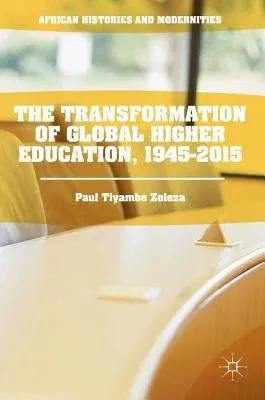Paul Tiyambe Zeleza
(Author)The Transformation of Global Higher Education, 1945-2015 (2016)Hardcover - 2016, 21 July 2016

Qty
1
Turbo
Ships in 2 - 3 days
In Stock
Free Delivery
Cash on Delivery
15 Days
Free Returns
Secure Checkout

Part of Series
African Histories and Modernities
Print Length
385 pages
Language
English
Publisher
Palgrave MacMillan
Date Published
21 Jul 2016
ISBN-10
1137578572
ISBN-13
9781137578570
Description
Product Details
Author:
Book Edition:
2016
Book Format:
Hardcover
Country of Origin:
NL
Date Published:
21 July 2016
Dimensions:
22.33 x
15.27 x
2.62 cm
Genre:
Modern
ISBN-10:
1137578572
ISBN-13:
9781137578570
Language:
English
Location:
New York
Pages:
385
Publisher:
Weight:
612.35 gm